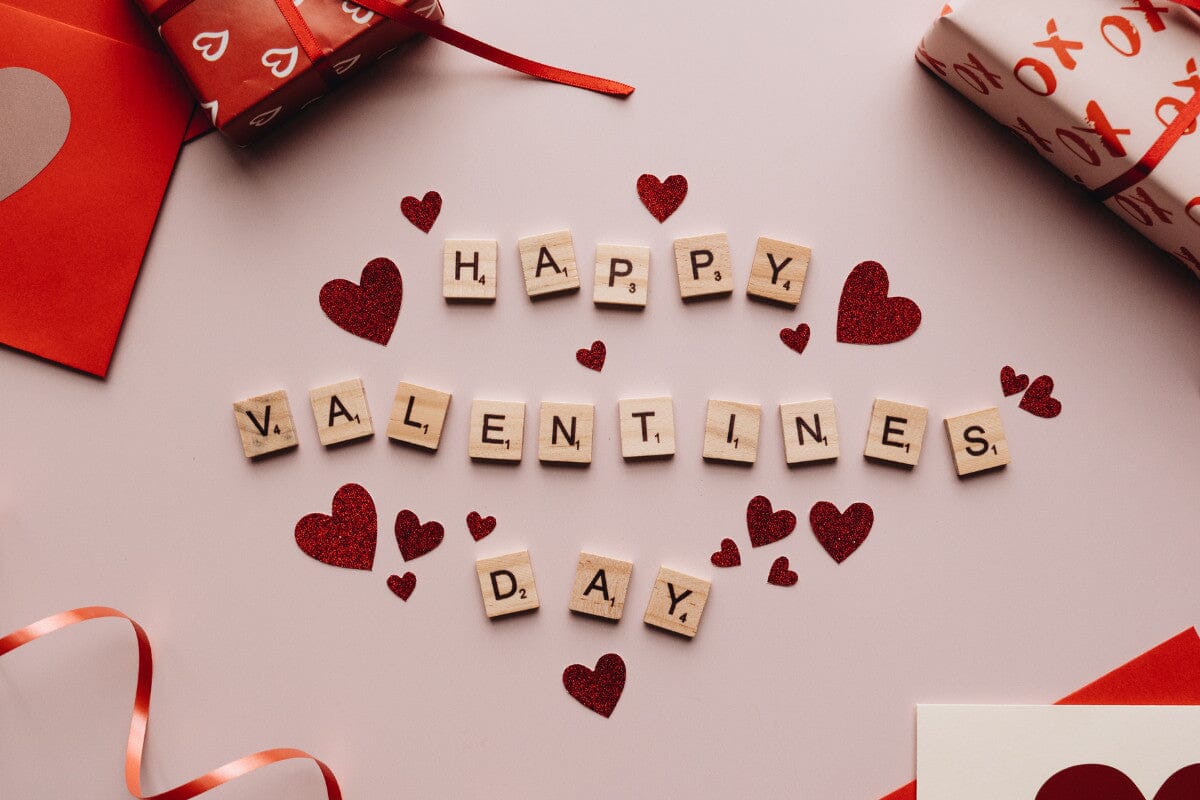Your Cart is Empty
FREE SHIPPING OVER $45 & RETURNLESS REFUNDS

Ah, Valentine's Day—the day when love is in the air, and sweet gestures abound. Beyond the usual roses and chocolates, there's a treasure trove of quirky and heartwarming stories that make this day truly special. From love locks on bridges to ancient asteroid dedications, the history of Valentine's Day is as intriguing as it is romantic. Let's dive into 14 fun and surprising facts that add a whole new layer to the celebration of love.
In 2013, NASA's Curiosity Rover transmitted a special message to Earth from the surface of Mars in celebration of Valentine's Day. The rover drew a giant heart on the Martian surface using its tracks, symbolizing the connection between humanity and the exploration of distant planets.
According to the National Retail Federation, US consumers spent nearly $26 billion on Valentine's Day in 2023. That's a whole lot of money spent on love.
In medieval Europe, people used to draw lots on Valentine's Day as a charming and communal way of matchmaking. Participants would place their names into a container, take turns drawing names, and the selected individual became their Valentine for the day. This practice added an element of surprise and anticipation, fostering a sense of romantic intrigue and playfulness as couples exchanged gifts and enjoyed the festivities of the day.
Richard Cadbury created the first heart-shaped box of chocolates for Valentine's Day in 1861. The goal was to create fancier-looking boxes in hopes of increasing sales.
His name might sound familiar to you because he was also one of the inventors (along with his brother John) of the Cadbury Eggs that we consume on Easter!
You know those chalky heart-shaped candies with various Valentine's Day-themed words on them? The Spangler Candy Company produces about 8 billion of them every year.
6. The Origin of Valentine's Cards
The tradition of exchanging Valentine's Day cards dates back to the 17th century. The first commercially printed Valentine's cards appeared in the 1800s in England. Esther Howland, known as the "Mother of the American Valentine," started mass-producing them in the United States in the 1840s.
In some countries, it's customary for couples to attach padlocks to bridges or other public structures as a symbol of their love. The keys are then thrown away, signifying the unbreakable nature of their bond.
Astronomers have named a small asteroid "4769 Castalia" after Valentine's Day. Discovered in 1989, its name was inspired by the Greek mythological story of a nymph named Castalia who was pursued by the god Apollo.
Red roses are synonymous with love, but did you know that different colored roses convey different sentiments? White roses symbolize purity, yellow roses represent friendship, and pink roses express admiration.
Research suggests that when couples are in love and gaze into each other's eyes, their heartbeats synchronize. This phenomenon is known as interpersonal synchronization and adds a romantic touch to the connection between partners.
Lovebirds, small parakeets known for their affectionate behavior, are often considered symbols of love and romance. Legend has it that if they are kept in captivity alone, they may pine away from loneliness.
In the 19th century, some people opposed the commercialization of Valentine's Day, viewing it as a day that fueled extravagance. They protested by hosting anti-Valentine's Day gatherings.
The largest love letter ever written was more than 2,900 feet long. It was created in 2014 in Mexico by thousands of people, expressing their collective feelings of love and unity.
The oldest known love song dates back over 4,000 years. It was written on a cuneiform tablet in the Sumerian city of Ur, in present-day Iraq. The lyrics express the author's longing and desire for his beloved.
How do you celebrate Valentine's Day? Share with us on Facebook, Twitter, or Instagram!
Let me know what topics you're interested in, and I'll do my best to include them in future blogs! Email me at info@toneshealth.com